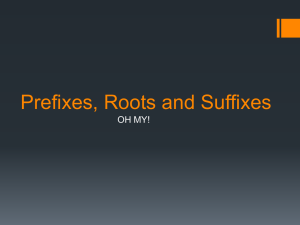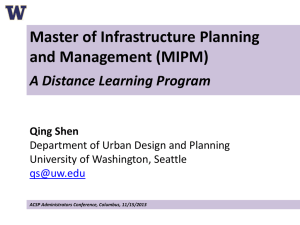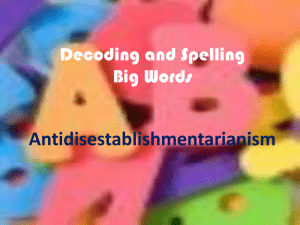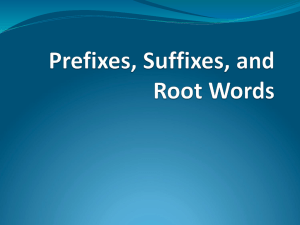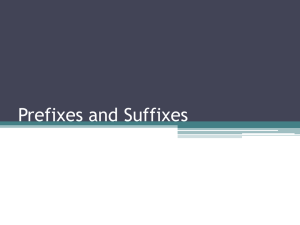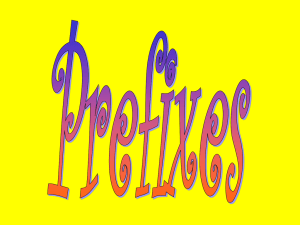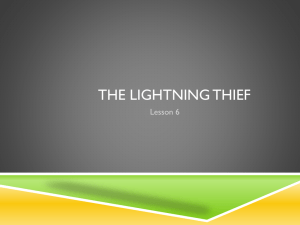11CS30002
advertisement
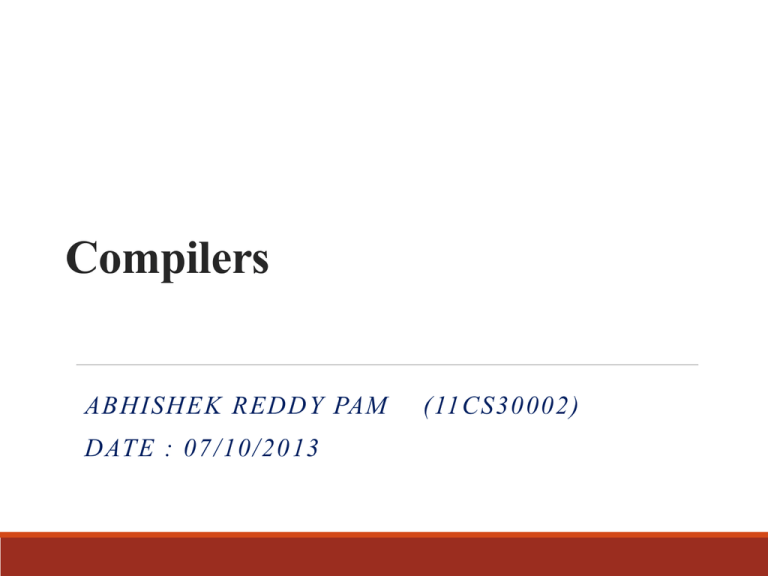
Compilers
ABHISHEK REDDY PAM
DATE : 07/10/2013
(11CS30002)
Viable Prefix
The set of prefixes of right sentential forms that
can appear on the stack of a shift-reduce parser are
called viable prefixes.
Right-Sentential Form : A sentential form that
can be derived by a rightmost derivation
The prefix of the sentential form may not be the
content of the stack.
Example
Consider:
S aABe
A Abc | b
Bd
Rightmost Derivation of the string abbcde:
S aABe aAde aAbcde abbcde
The (unique) handle is underlined for each step.
Continuation…
A viable prefix is :
(1) a string that equals a prefix of a rightsentential form up to (and including) its unique
handle.
(2) any prefix of a string that satisfies (1)
For given example :
Viable prefixes: a, aA, aAd, aAbc, ab, aAb,…
Not viable prefixes: aAde, Abc, aAA,…
Shift/Reduce Parser
Stack
Input
Remark
$
abbcde$
SHIFT
$a
bbcde$
SHIFT
$ab
bcde$
REDUCE
$aA
bcde$
SHIFT
$aAb
cde$
SHIFT
$aAbc
de$
REDUCE
$aA
de$
SHIFT
$aAd
e$
REDUCE
$aAB
e$
SHIFT
$aABe
$
REDUCE
$S
$
ACCEPT
All strings in
the stack
are viable prefixes
When to shift/reduce ?
•Sometimes on top of the stack something appears to be a handle (i.e.,
matches the RHS of a production).
•But: maybe we have not shifted enough elements to identify the handle.
•Observe the correct sequence of Shift and Reduce
steps preserves the property that the stack IS a viable prefix.
Example :
$aAb
cde$
Shift or Reduce?
•If we shift we obtain aAbc in the stack (aA is the valid item for the
viable prefix aAbc). Recall that Abc is a handle.
•Instead if we reduce we obtain aAA in the stack.
(this is NOT a viable prefix!!!)
Valid Items
DEFINITION:
A α.β, {a} is a valid LR(1)-item for a viable prefix γα if there exists a
right-most derivation.
S γAy γαβy
Such that
i.
a is the first symbol of y (or)
ii.
y = ε and a = $
THE END
A DFA accepting viable prefixes. Its states are sets of LR(1)-items (that
are valid for the corresponding viable prefixes)
Canonical LR Parser(LR(1) Parser) , States and encoding of valid items
and viable prefixes are discussed in the next lecture.

